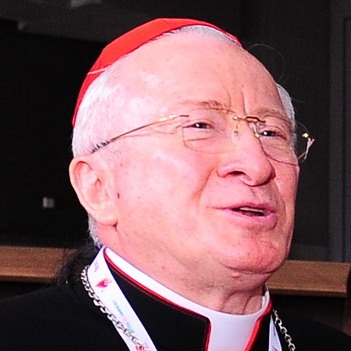|
Brexit and its fallout are the only subjects in town at the moment, which makes it unlikely that there will be much political appetite for discussions on more or less any important subject that is not related to the resulting leadership campaigns pre-October or EU/trade negotiations post-October.
At Marriage Foundation, we have always taken the view that our role is less about politics and policy and more about getting good information out to the public on family stability. We are here to give couples and families the confidence to talk about marriage because marriage is so utterly key to strong families.
So even if, not surprisingly, it's been a quiet month for us in terms of media coverage - and may be for a while longer - interest will inevitably return because marriage and family life provide such a rich seam of stories.
In the meantime, here are some reasons why we need to keep speaking out about marriage and family:
-
Family breakdown still remains a national epidemic. One in four toddlers and nearly one in two teenagers are not living with both natural parents.
- Despite often heroic efforts, half of all lone parents still end up in the lowest income group and rely on benefits for support. Their children are twice as likely to have health or educational problems. Nobody wants this.
-
Picking up the pieces of family breakdown still costs the taxpayer £48 billion per year, more than five times our £8.5 bn net contribution to the EU (and more than three times our £13 bn gross contribution less rebate).
-
Cohabiting parents still account for half of all family breakdown although they comprise only one in five couples.
-
Parents who marry are still far more likely to stay together. Whereas two out of ten married parents will split up before their child sits GCSEs, seven out of ten unmarried parents will do so. Age and education don't explain this huge gap.
-
The trend away from marriage has hit the poorest most and the richest least. Among parents with children under five, just 25% of the lowest earners are married - and therefore face the highest break-up risk. In sharp contrast, almost 90% of those earning over £40,000 (which ironically includes all the policy-makers who keep telling us that marriage doesn't matter) are married.
There remains an ongoing battle to be won to restore confidence in marriage and to encourage commitment, especially among the lower income groups who have been so badly advised by our do-as-I-say policy makers.
Even if marriage and family issues have temporarily dropped off the news and policy agenda, it's up to us to keep this vital subject alive in our own homes and in our conversations with friends, family and neighbours. I hope our work encourages you. Don't forget our Key Facts pages are there to help.
May your own marriage and those around you flourish!
Harry Benson, Marriage Foundation
|
|
The surprise finding that teens are affected by whether their parents are married or not
Continue reading →
|
|
|
If there was ever any doubt, our new study based on the best new UK data dispels it.
Continue reading →
|
|
|
It's twenty years ago that Kate invited me to a meeting about our marriage ... my most read blog
Continue reading →
|
|
|
|
|

|
It may have been a quiet month for Marriage Foundation. But it's been a busy month for the Benson family.
Kate and I celebrated our 30th wedding anniversary with a party at our home in Somerset.
We had the most fabulous day, surrounded by our children, family, and friends.
Our children organised the church service, where they each spoke movingly about our influence as parents on their lives, and we reaffirmed our marriage vows.
Afterwards, during our celebratory meal, four very special friends spoke in different ways about some the ups and downs of our married life so far.
Our anniversary service and party was of course an indulgent treat for us. But it was so much more than that.
If you haven't already considered it, may I encourage you most warmly to think about celebrating your next major anniversary in some way.
There are so many reasons why this is such a great idea.
An anniversary party celebrates the whole of your married life, all that you've achieved so far and all that you still have to come. It combines the very best aspects of a wedding - the future - and a funeral - the past.
It's affirming, inspiring, encouraging, and great fun!
We were inspired to do this by friends of ours who celebrated their 50th anniversary a year ago. We are hugely grateful for their inspiration.
We hope we can inspire you to do the same, whether for your 20th, 30th, 40th, 50th or whatever!
The Marriage Foundation is a registered charity.
No 1150453
(If you'd like to support our work, you can make a one-off donation online or a regular donation by contacting our office on 0203 291 0912)
|
|
|
Marriage Foundation in the news
Brexit squeezed out most other news stories last month. The political fallout looks certain to dominate the news agenda for the coming months.
Our media coverage was limited to a couple of interviews with BBC local radio, a mention in the Mail and a reference to Paul's retirement as a high court judge in the Times. There were also a few follow-up stories in European papers and the Christian press, such as the Catholic Herald.
Since our launch in May 2012, we have appeared on BBC News, BBC Newsnight, Channel 4 and 5 News, ITV This Morning, BBC Radio 4 Today programme and You & Yours, BBC Radio 2 Jeremy Vine, and many other stations.
Most of our newspaper coverage in the major national newspapers can be found here.
|
|
|
Our latest research papers
Our aim is to rebuild confidence in marriage. And there's nothing quite like good solid data and top notch research to dispel myths and help create the conditions for change.
Here are a few of our findings, all of which made headlines:
NEW Teen Self Esteem
Report - Telegraph - Mail - Sun - Express
Vanishing Divorce
Blog - Report - Sunday Times -
|
|
|
|
|
 Recent changes to the Child Care and Development Block Grant, Proposed Head Start Standards, and Every Student Succeeds Act have broad implications for early childhood data collection. On Tuesday, July 19 at 1 p.m. ET, the Early Childhood Data Collaborative will host a discussion of strategies and approaches, led by an expert panel.
Recent changes to the Child Care and Development Block Grant, Proposed Head Start Standards, and Every Student Succeeds Act have broad implications for early childhood data collection. On Tuesday, July 19 at 1 p.m. ET, the Early Childhood Data Collaborative will host a discussion of strategies and approaches, led by an expert panel.















































 Receive this alert as RSS feed
Receive this alert as RSS feed 


